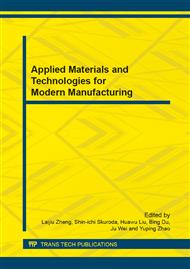p.1014
p.1018
p.1027
p.1031
p.1036
p.1041
p.1046
p.1051
p.1055
Study on Carbonization Test of Manufactured Sand Concrete
Abstract:
To study the impact of mineral admixtures and water-binder ratio on carbonization resistance of high performance manufactured sand concrete, high performance concrete of single mixed flyash, admixing silica fume and no admixture were compounded, carbonation depth of 3d, 7d, 14d and 28d was recorded by the way of indoor test. The test results show that with the decrease of water-binder ratio, carbonation resistance of high performance manufactured sand concrete increase, and when the concrete compressive strength is over 55Mpa, carbonation resistance is good, and when water-binder ratio is lower than 0.38, the impact of mineral admixtures on the carbonation resistance can be neglected.
Info:
Periodical:
Pages:
1036-1040
Citation:
Online since:
September 2013
Authors:
Price:
Сopyright:
© 2013 Trans Tech Publications Ltd. All Rights Reserved
Share:
Citation:


